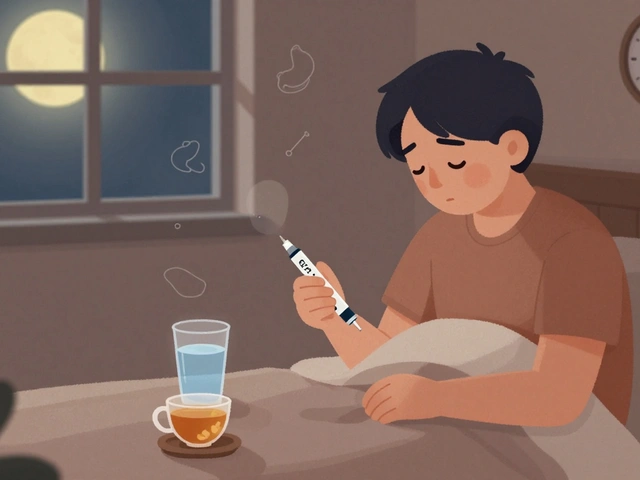Male fern: Uses, risks, and safety tips
Male fern is an old herbal remedy that's more dangerous than people realize. If you've seen it in herb books, you may know it was used against intestinal worms. The plant (Dryopteris filix-mas) contains compounds called filicins and phloroglucinols that affect parasites but can also harm humans. Modern medicine rarely uses male fern because safer drugs replaced it decades ago.
Uses and risks
It was effective at killing tapeworms when used correctly. Many historical reports show it worked, but the margin between a helpful dose and a toxic one is small. Side effects reported include nausea, vomiting, dizziness, headache, and in serious cases heart and nerve damage. That risk makes it a poor choice compared with prescription anthelmintics such as praziquantel or albendazole.
Traditional preparations were roots or rhizomes boiled into teas or made into extracts. The active chemicals are concentrated in the rhizome. Homemade teas are risky because concentration varies a lot and that unpredictability increases the chance of overdose. Few current medical guides recommend male fern. Some regions list it in folk medicine references, but mainstream practice prefers regulated, tested drugs. If you find a product marketed with male fern, suspect poor quality control and unclear dosing.
Safety tips
Pregnant or breastfeeding people should avoid male fern completely. The plant can cause uterine stimulation and nerve effects. It also affects heart rhythm and can interact with other medicines that change heart rate or electrolytes. If you take prescription drugs, especially heart or nervous system drugs, ask a clinician before touching any fern preparations.
If you worry about parasites, don’t self-treat with herbs. Ask a doctor for testing and proper medication. Modern anthelmintic drugs are fast, effective, and much safer. They come with clear dosing, side effect profiles, and medical supervision if needed.
Practical tips: If you handle male fern in the garden, wear gloves and wash hands. Keep it away from children and pets. Never make homemade doses for treating worms. If someone swallows a fern extract, look for stomach pain, fainting, trouble breathing, or irregular heartbeat. Call your local poison control center or emergency services right away. Do not try to force vomiting unless a poison expert tells you.
For parasite concerns, ask a clinician for a stool test or blood test. Treatment with prescription drugs is usually one pill or a short course, supervised and safe. Don't self-medicate.
Identification and buying: Male fern grows in shady, moist areas and has large pinnate fronds. Do not assume a plant ID is enough to use it medicinally. Many online sellers list 'fern extract' without testing or clear composition. If you see such products, avoid them. Talk to a pharmacist or clinic about approved treatments for worms. Ask about side effects, interactions with your other meds, and whether testing is needed before treatment. If cost is a concern, pharmacies often have generic anthelmintic options or assistance programs to help you get safe, affordable medication.
When in doubt, see a healthcare professional promptly.
25
Male Fern: The Best Dietary Supplement for Men and Why You Should Try It
Discover how male fern can boost your well-being as a man. This article goes over its impressive health benefits, how it works, and how to use it safely. You'll find out the science behind male fern and get practical tips for picking and taking the supplement. Whether you're new to supplements or looking for something different, you'll learn why male fern could be a game changer. Read on to get the facts and make a smart choice for your health.
Latest Posts
Popular Posts
-
 Meniere’s Diet: How Sodium Restriction and Fluid Balance Reduce Vertigo and Hearing Loss
Meniere’s Diet: How Sodium Restriction and Fluid Balance Reduce Vertigo and Hearing Loss
-
 Accidental Pediatric Medication Overdose: How to Prevent It and What to Do If It Happens
Accidental Pediatric Medication Overdose: How to Prevent It and What to Do If It Happens
-
 Magnesium Supplements and Osteoporosis Medications: What You Need to Know About Timing
Magnesium Supplements and Osteoporosis Medications: What You Need to Know About Timing
-
 Duloxetine and Liver Health: What You Need to Know About Hepatotoxicity Risk
Duloxetine and Liver Health: What You Need to Know About Hepatotoxicity Risk
-
 Celiac Disease: Gluten-Free Living and Nutrient Supplementation
Celiac Disease: Gluten-Free Living and Nutrient Supplementation


